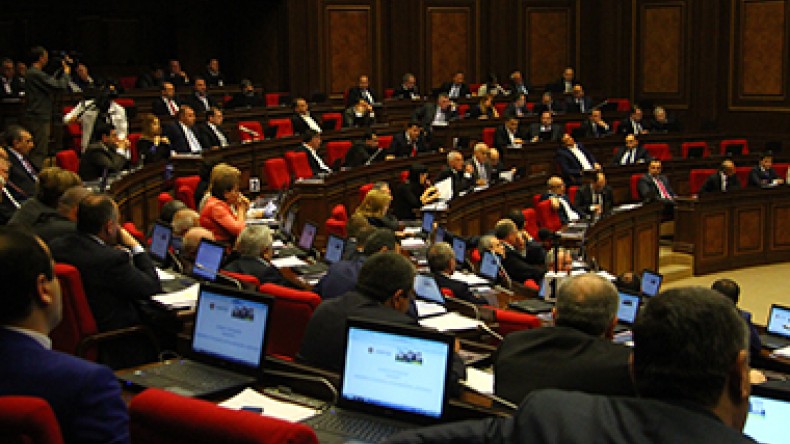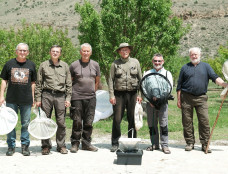
Parliamentary hearings on Nairit plant problem scheduled for autumn
The Armenian parliament will hold hearings on the problem of Yerevan-based Nairit plant in the autumn, the chairman of the parliamentary standing committee on economic affairs Vardan Aivazyan said in the National Assembly today.
According to V. Aivazyan, the results of a study on the chemical plant are presented today, but parliamentary hearings are scheduled for the autumn of this year.
As was reported, the results of a study on Yerevan-based Nairit chemical plant’s further operation and its financial and technical viability were presented in National Assembly of Armenia today. The study was conducted by Jacobs Consultancy Ltd and summed up by experts of the World Bank.
During the discussion in Armenian parliament, Minister of Energy and Natural Resources Yervand Zakharyan said that Nairit should be either re-operated by making sound investment in it or closed down, which could result in serious ecological problems and large expenses. “The government will not benefit from the bankruptcy of the company as it will lead to serious financial expenditures and safety problems. So I say with all responsibility that the opinion that the government is taking measures for the company’s closure is not true. The government provides support and does everything for re-operation of the plant,” the minister said reminding those present that the plant’s debt amounts to 17.5 billion drams, while in 2010 the owner left Nairit to its fate. Y. Zakharyan also said that repayment of Nairit workers’ back wages began last week.
Workers of Nairit plant have been staging protests since late 2014, and their protests are backed by some political forces of Armenia. They demand full repayment of their back wages amounting to 5.7 billion drams over the past 4 years. On February 6, 2015 the plant announced 1,700 layoffs. Panorama.am learned from Anush Harutyunyan, a member of the group coordinating protests of Nairit staff, that since July 24 about 450 workers have received their back wages.
Newsfeed
Videos






























